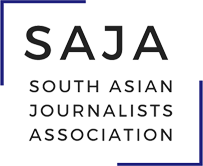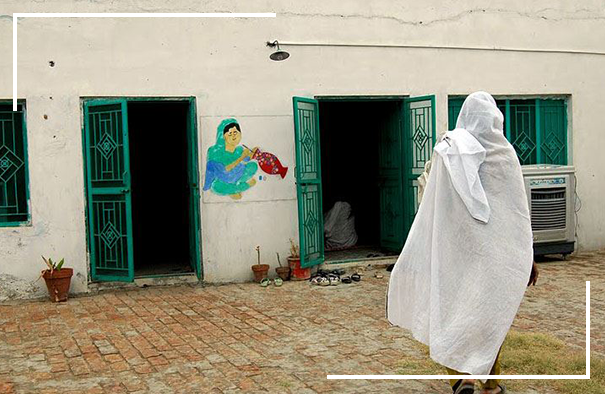Applications for the fellowship will be judged on questions, including: Is this an important story? How likely is this journalist or team of journalists to succeed in executing the project and seeing it through to publication? Is there a commitment to publish the story from a publication? What’s the reach of the intended publication? Is the budget realistic? Application RequirementsApplications, which are accepted on a rolling basis, must include:
Please apply using this Google form. Incomplete applications will not be considered. Judging: A panel of judges, selected by SAJA's Board will review the applications and make recommendations to the SAJA board. The SAJA board will make the final determinations on the projects selected and amount awarded to each. Fellows will be notified and are expected to be available for interviews with the judges if necessary. After the application period:
Disclaimer
TAX INFORMATION: Anti money-laundering and other U.S. tax laws require SAJA to verify the identity of all payees. Each Grant recipient is required to provide information such as nationality, country of residence, the mailing address of home and office and tax information (Form W-9 or W8 BEN). Reporting Fellowship Grant payments will be paid in U.S. Dollars by wire transfer to the Grant recipient’s bank account (which are subject to applicable bank charges and fees). The Grant payments are reimbursements for actual expenses incurred and, therefore, not deemed to be compensation for services. Accordingly, no tax form (such as Form 1099) will be issued for the Grant amounts. SAJA needs financial support to continue the Reporting Fellowship Program and other programs. Please pass on the following information to prospective donors.Contribute to SAJA
Recent Reporting Fellowship Awardees!
Zuha Siddiqui is a journalist based in Karachi, Pakistan. She writes about borders, refugees, migration and human rights, and her work has appeared in Foreign Policy, The Diplomat, and BuzzFeed news, among others. Zuha was also a Falak Sufi Fellow at NYU and graduated from the Arthur L. Carter Journalism Institute in 2019. She is currently an editor and reporter-researcher at a newsroom based in Karachi producing stories in the public interest. .jpeg)
Shashank Bengali is a foreign correspondent for the Los Angeles Times, based in Singapore. He previously spent five years in Mumbai as the newspaper’s South Asia bureau chief and before that covered foreign affairs and national security in Washington. He has reported from more than 60 countries and is the recipient of several honors, including a 2016 SAJA Journalism Award for enterprise reporting for a narrative story about a Bangladeshi migrant to America.
Dharani Thangavelu is an independent journalist based in Tamil Nadu, southern India. Dharani worked for various media outlets, notably the Mint newspaper. Having spent the initial days as a business reporter covering the biggest automobile and IT companies in India, Dharani went on to extensively report on politics, environment and other sociocultural issues with a key focus on south India. Being a software engineer, Dharani switched professions to become a journalist after graduating from the Asian College of Journalism. Dharani can be reached on Twitter: @DharaniT Frequently Asked QuestionsQ. Is the SAJA Reporting Fellowship (SRF) open to journalists not based in the United States? A. The SRF is open to all journalists, anywhere in the world, as long as the proposal is about South Asia or the South Asian Diaspora. The finished work must also be published, aired or posted online by a US or Canadian publication, broadcaster or Website. Q. What projects are being considered for the SRF? A. Generally, we are looking for projects that cover topical and important issues that have either not been covered in-depth or not covered at all by the mainstream U.S. media. Q. How much money will I receive for this fellowship if I were to win? A. The fellowship is awarding up to $20,000 this year. Each project, however, is likely to receive between $3,000 and $7,000 at SAJA's discretion. If a winning proposal requires additional support, the SAJA board has the discretion to provide more funding. Q. I am a freelancer. How important is the letter of support from a U.S. or Canadian publication showing interest in the piece? A. It is a critical component of the application package. Without that letter, your proposal will be considered incomplete. Q. I work for a South Asia-based media company. Do I need a letter of interest from a U.S. or Canadian publication or can I just run the piece in my publication in South Asia? A. One of the main goals of the SRF is to bring strong coverage of South Asia and the South Asian Diaspora to North American audiences. SAJA assumes that publications in South Asia cover that region regularly. Therefore, it is critical that journalists working for South Asia-based media find a U.S. or Canadian market for their proposals. A letter from an editor of a North American media organization showing support and strong interest in the proposal is REQUIRED. Q. I will need to purchase equipment--like cameras, hard drives, audio recorders, etc.--to successfully complete this project. Will the SRF pay for such equipment? A. The fellowship does NOT pay for big-ticket electronic items. It will, however, pay for Flash Memory up to $200. Q. I work for a North America-based media outlet. Why do I need to submit a letter of support from my editor? A. You need to submit a letter of support from your editor to assure SAJA that your employer will support your endeavors. This support could can be in the form of 1) additional financial support to complete the reporting; 2) giving you time to travel to complete the reporting; 3) setting aside time from your daily work obligations to complete the reporting and writing required to complete the project. Q. Why does the media outlet that first publishes the work have to agree to let other organizations republish the work after an initial, exclusive run? A. The goal of the SRF is to bring awareness to the widest possible North American audiences about an important issue about South Asia or the South Asian Diaspora. Therefore, SAJA gives first-run exclusivity, but then wants to disseminate the work more widely after that period. SAJA asks subsequent publications to credit both the SRF and the original media outlet that ran the piece. Q. If I have applied before, can I apply again? A. Yes, you may apply again. SAJA recommends, however, that if you did not win previously, you re-conceptualize your proposal to give it a fresh perspective. Q. Can I apply by the deadline but submit required material after the deadline? A. NO. Incomplete applications will NOT be considered. Q. Does it matter how well the application is written? A. Yes. It indicates to SAJA how serious you are about your work, your attitude toward this fellowship, and your drive to successfully publish the reportage. Q. Can I submit several proposals? A. Yes, as long as each proposal is self-contained with ALL the required material. Q. Can a team submit a proposal team? A. Yes, a team may submit a project. Keep in mind, however, that a team of more than 2 or 3 will require more travel expenses. In that case, the team may need to find other funding support. Q. Which countries are considered to be part of South Asia? A. South Asia is the all-encompassing term for the Indian Subcontinent. South Asia is distinct from East and Southeast Asia. The seven countries of South Asia are Bangladesh, Bhutan, India, Maldives, Nepal, Pakistan and Sri Lanka. The SRF, however, will also consider proposals about Afghanistan. Q. What does SAJA define as the South Asian Diaspora? A. The SAJA stylebook defines it as follows: Because of the British colonial legacy and large-scale immigration, there are substantial pockets of people of South Asian origin scattered around the world (besides South Asia, of course). In some cases--Fiji, Guyana, Mauritius, Suriname and Trinidad & Tobago--South Asians make up at least 35 percent of the population. Other countries with large South Asian communities: Malaysia, Singapore, South Africa, United Arab Emirates and the United Kingdom. The government of India puts the size of the Diaspora at more than 20 million. There are more than 2 million South Asians in the United States. Stories about the South Asian Diaspora in these countries as well as more recent settlements will be considered. Q. When is the deadline? A. We are accepting applications on a quarterly basis; please see the very top of this page for the next applicable deadline. |


.png)

.jpg)
